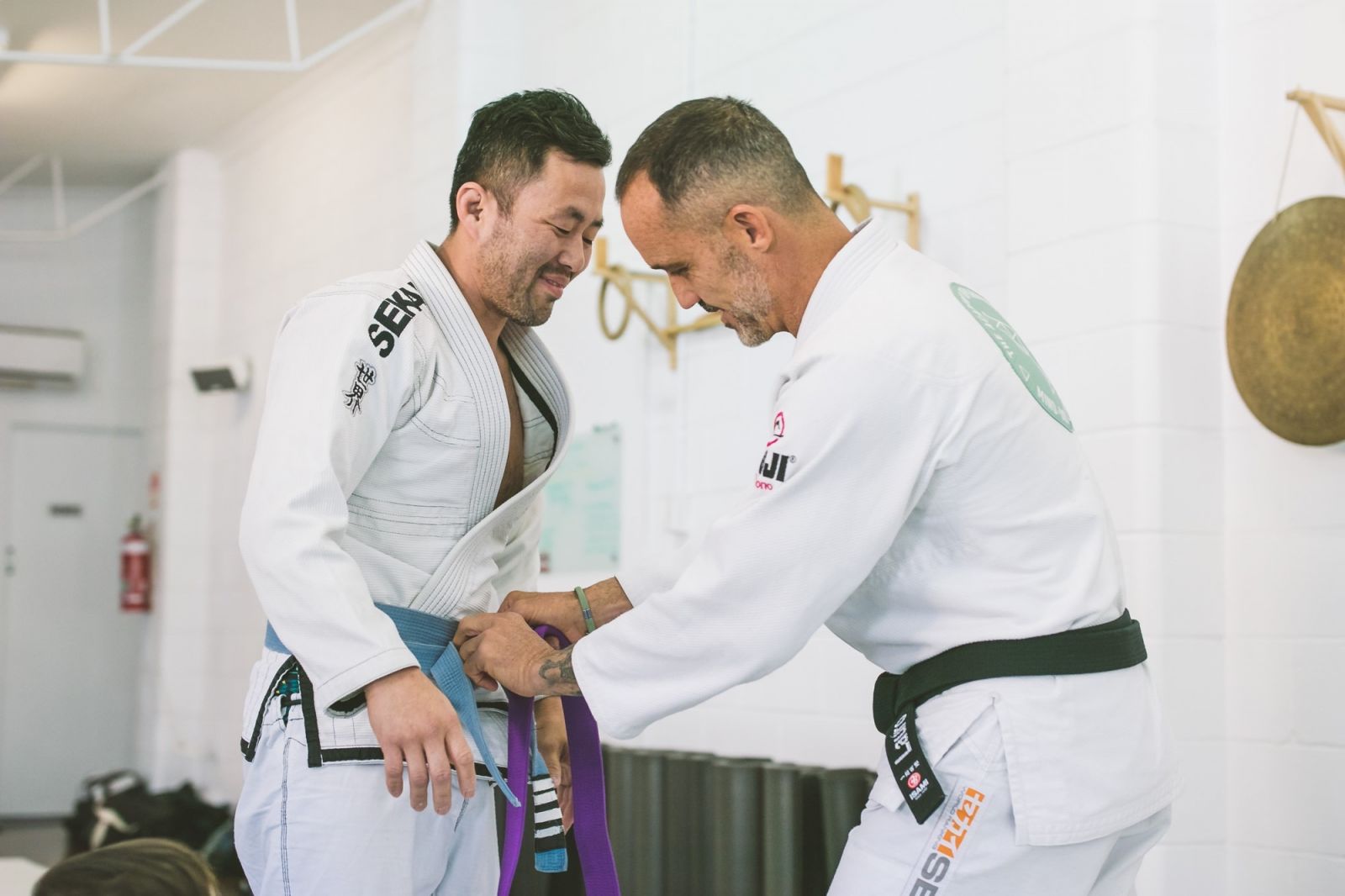
Martial arts is a world beyond your comfort zone. If you have no prior experience in martial arts, joining an MMA, BJJ or Judo class can make you nervous, and even intimidated. After all, martial arts does require strong will power, discipline, and passion. Whether you’re looking for a career in the sport or as a new recreational outlet; Listed below are 10 tips to help you get on track.
Most people think they have to be in top shape to start learning MMA, BJJ, Judo or any other martial art. But, NO; people rarely start martial arts with an already incredible physique. Instead, most people develop an incredible physique through martial arts. So, stop doubting yourself and start committing yourself!
The first and most important requirement of any martial art is commitment. Being good at martial arts isn’t easy; it requires blood, sweat, and tears. Go to an MMA gym or a martial arts class and request for a free class. Most gyms and classes offer a free class for people to try and decide whether they are going to sign up. If you still think you’re not up to it, it’s better off not starting to train at all, rather than training just for the sake of doing it. But, if you have the will power to commit yourself, nothing is holding you back from achieving anything but greatness!
In martial arts, your worst enemy resides within yourself: Your ego can seriously hinder your mindset. No one is born a great fighter. Everyone starts as a beginner at some point; so, never hesitate to ask anyone on how to perform a certain technique or move. And, always be open-minded. You never know how much you can learn from other people.
Winning is never the aim of martial arts. It’s about expressing your inner-self, and proper technique is a part of the process. Learning and execution of the proper technique can also ensure both the safety of yourself and your opponent/sparring partner.
Also, understand that losing is also a part of the learning process. Make sure you tap out of a submission; never wait until you feel the pain or hear a popping sound. You must be in good health for the next training session for you to learn. As you progress, you’ll learn to stay safe and escape submissions. But, for now, play it safe!
No amount of solo drills at home or watching others perform a technique/drill can replace what you learn through sparring. Sparring is when you learn to apply what you learn and it is the only thing that will get you ready for real-life situations. When you’re sparring with someone with a higher belt, never fail to give them your ‘A’ game. Put in every ounce of your knowledge and energy to subdue or get them into submission. If you’re sparring with someone with a lower belt, go easy on them- no one wants to see you beat a newbie into a pulp. Instead, you can use this as an opportunity to test out new techniques and improve weaker aspects of your technique.
Being good at MMA, BJJ or Judo comes at a price; Extremely hard work! Brutal warm-ups drain your energy even before you start taking lessons or sparring. And, during sparring, you’re going to lose. It’s just a part of the process, nevertheless, it can be frustrating. Martial arts will challenge your physical fitness levels as well as mental fitness levels. During sparring; analyzing the situation and applying a technique within a matter of seconds takes incredible brainpower. And the next day you’re going to wake up with sore muscles and bruises. It’s that will power and passion to attend the next class, regardless of all physical and mental punishment you took during the last that separates average joes from martial artists
It’s seldom you can remember everything taught in the class. And, more often than not, you need to have a thorough idea about the previous technique before learning a new one. It’s most effective if you can make notes within 2 days after your class.
You can’t master BJJ, MMA or Judo within a matter of months. It takes impeccable discipline and years to be good at it. However, it doesn’t mean you won’t improve. It’s best to set some short-term and long-term goals to keep track of your progress and keep pushing yourself to achieve them.
Telegraphing is a slight cue that you give the opponent about your next move. It can be as obvious as staring at where you’re going to attack next or as subtle as the slight tensing of a muscle. Either way, an experienced fighter can easily read such cues, making you predictable. This is especially noticeable among Judo beginners, where they often stare at the opponent's feet rather than trying to ‘feel’ them.
This is self-explanatory. Always trim your nails short to avoid scratching or injuring your sparring partners. And always wear clean uniforms and training gear.
Leave a comment